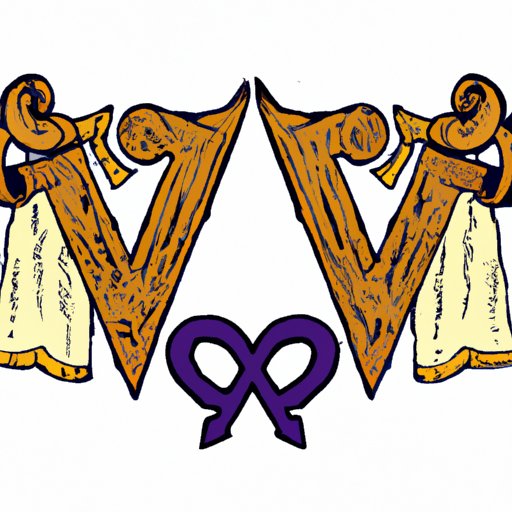
Introduction
Freemasonry is a subject of curiosity for many people around the world. Its mystique has surrounded the organization for centuries, making it a source of mystery and intrigue. From conspiracy theories to Hollywood blockbusters, there is no shortage of myths and misconceptions about Freemasonry. However, the truth about this organization is much more fascinating than any fabricated conspiracy. The aim of this article is to provide readers with a comprehensive guide to Freemasonry; shedding light on its beliefs, history, rituals, and cultural significance. Through this article, we will debunk common myths and misconceptions about the organization, and provide readers with an informed perspective on this secret society.
Unveiling the Secret Society: A Beginner’s Guide to Freemasonry
Freemasonry is a fraternal organization that traces its origins to local fraternities of stonemasons, which date back to the Middle Ages. Today, Freemasonry is a global organization with a membership estimated to be around 6 million worldwide. Freemasonry is a non-political, non-religious, and charitable organization that has received much attention and controversy over the years. The values of Freemasonry revolve around the belief in a Supreme Being, charity, integrity, and self-improvement.
The organizational structure of Freemasonry is hierarchical, with the most senior members known as grand masters. The organization is structured around a network of local lodges, which provide a platform for members to connect and engage in charitable work. Membership is open to men aged 18 and over who believe in a Supreme Being and are of good moral character.
The History and Evolution of Freemasonry: A Comprehensive Overview
The origins of Freemasonry can be traced back to the local fraternities of stonemasons who built the beautiful cathedrals and buildings of Europe during the Middle Ages. Over time, these fraternities evolved into guilds of craftworkers and merchants who found common purpose in their pursuit of knowledge.
The modern era of Freemasonry can be traced to the 1700s when several grand lodges were established in England. From there, the organization quickly spread to other parts of Europe and the world. Freemasonry played a significant role in the Enlightenment, with many of its members being key thinkers in the movement.
The different types of Freemasonry that exist today include the Traditional Observance lodges, Regular Freemasonry, and Liberal Freemasonry. These different types vary in their interpretation of the organization’s basic principles and rules of governance.
Inside the Masonic Lodge: Understanding the Rituals and Symbols
One of the most intriguing aspects of Freemasonry is its use of symbols and rituals. The symbols used in Freemasonry are rich in meaning and significance. Some of the most common symbols include the Masonic apron, the Square and Compasses, and the Gavel. These symbols represent values such as morality, brotherhood, and charity.
One of the most significant rituals performed in Freemasonry is the initiation ceremony. This ceremony marks the beginning of the journey of self-discovery and self-improvement that is at the heart of Freemasonry. The initiation ceremony involves a series of symbolic actions and words that are designed to impress upon the new member the importance of the organization’s values and principles.
Freemasonry and its Influence on Society: Past and Present
Freemasonry has had a significant impact on society throughout history. Many notable figures in history were Freemasons, including George Washington, Benjamin Franklin, and Winston Churchill. Freemasons have also been involved in many philanthropic causes, such as building hospitals and schools.
Today, Freemasonry continues to be a force for good in society. The organization’s charitable work, including scholarships, disaster relief, and community service initiatives, demonstrate its commitment to making a positive impact in the world.

Freemasonry Around the World: Exploring its Cultural Significance
Freemasonry has a long tradition of adapting to cultural differences and taking on the values and traditions of the communities in which it operates. The organization has been received differently in different cultures around the world.
In many countries, including the United States, Freemasonry is seen as a mainstream and prestigious organization. In other parts of the world, particularly in the Middle East, Freemasonry is still viewed with suspicion and labeled as a secret society.
Debunking Myths About Freemasonry: Misconceptions and the Truth
One of the most pervasive myths about Freemasonry is that it is a secret society with a hidden agenda. This myth is based on a misunderstanding of the organization’s values and principles. Freemasonry is not a secret society, but rather a society with secrets. Its rituals and symbols are intended to be kept private, but its values and principles are open to the public.
Another common myth is that Freemasonry is associated with the Illuminati and devil worship. This myth is unfounded and has no basis in fact. Freemasonry is a non-religious organization that does not worship any deity.
Joining Freemasonry: What You Need to Know About Membership
The process of becoming a Freemason involves several steps, including an interview with a local lodge, a background check, and an initiation ceremony. Prospective members must believe in a Supreme Being and be of good moral character. Membership in Freemasonry requires a time commitment and financial contribution. However, the benefits of membership, such as personal growth, camaraderie, and access to resources and opportunities, make it a worthwhile investment.
Conclusion
Freemasonry is a fascinating subject with a rich history and culture. Understanding Freemasonry requires an open mind and a willingness to learn. Through this article, we hope to have debunked common myths and misconceptions about the organization and provided readers with an informed perspective. Whether you are a curious observer or a prospective member, there is much to discover about this secret society. We encourage you to do your own research and learn more about Freemasonry if it interests you.





